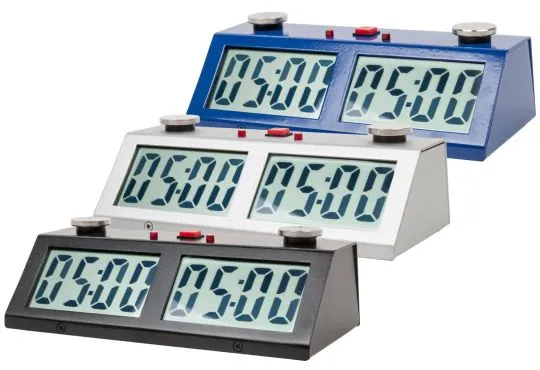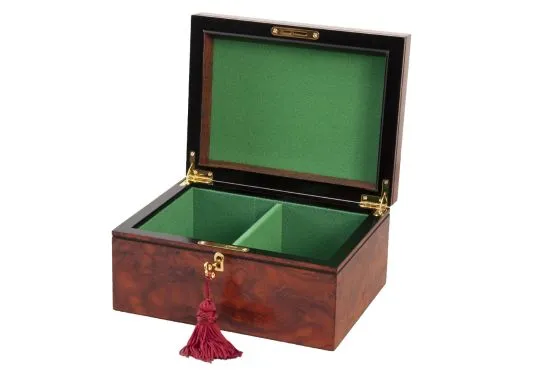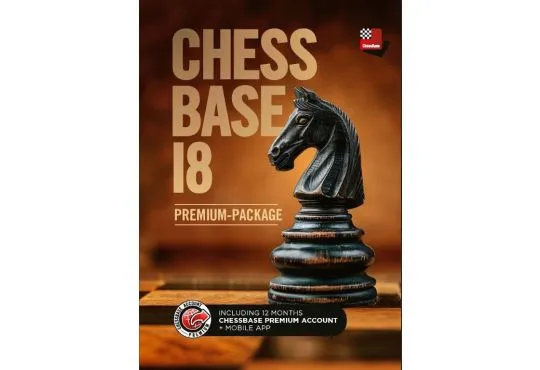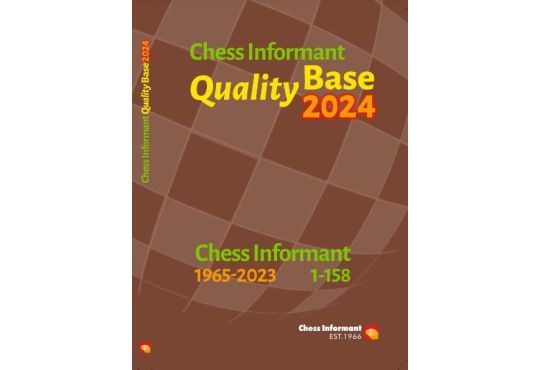Chess Tips To Instantly Improve Your Game
There are plenty of chess tips and tricks, but these are the ten that I teach my students that you need to know to improve your game. There are some chess strategy tips, chess mindset tricks, and chess preparation tips. If you apply all of these to your game, you will improve.

Table of contents
Learning Chess Strategy
There is far too much chess strategy to cover in a list of ten chess tips, but here are a few that will immediately boost your level of play.
1. Improve Your Pieces
Look at your chess pieces, are they on their best squares? Can any of your powerful pieces be improved with one or two moves? Take the position below.

This is an equal position, and if you are playing white you might not be sure how to continue. Start by asking yourself which pieces can be improved. One common chess opening principle is to develop your pieces, and this idea doesn’t go away just because you have passed the first five or ten moves. If a piece hasn’t been brought into the game, like the bishop on c1, then that can be a clear path forward. Here b3 would allow us to improve with the Bb2.
2. Watch Out for Open Files and Diagonals
Once you start asking yourself how to improve your pieces, you must look for open files and diagonals. So, what is an open file?

The open file in this position is the e-file. An open file is a file with no pawns. This allows for pieces, especially rooks, to access the position. So here black should move a rook to the open file, looking to get to the second rank and control the position.
Similarly, a bishop is much more powerful on an open diagonal, able to reach the opponent's position, compared to a more closed position, where the bishops can struggle.
-
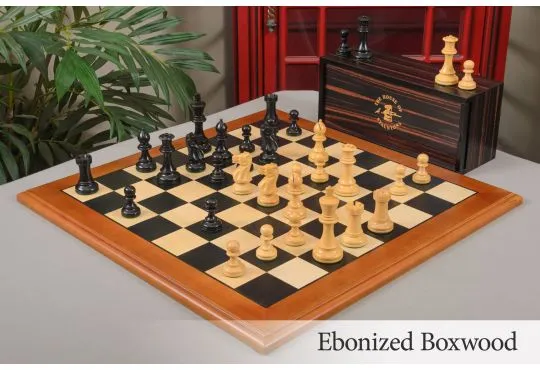 Free Worldwide Shipping
The Superior Grandmaster Chess Set, Box, & Board Combination Enjoy Savings of 24% Off MSRP When Purchased as a Combination
Free Worldwide Shipping
The Superior Grandmaster Chess Set, Box, & Board Combination Enjoy Savings of 24% Off MSRP When Purchased as a Combination$457.00
Starting at $349.00
To $428.95
3. Chess Coaching says: “Trade Pieces When Ahead!”
This is very common advice; generally, it has lasted because it is true. However, I would add one caveat: Trade when you have a material advantage, but look for the attack when you have a lead in material. The simplest position is checkmate.

If there is a strong attack in the position, then don’t give away your attacking pieces just because you heard you are supposed to trade when leading in material count. Here white can play the forced mate-in-two with Qg4+.
Even though white is technically up material, they looked for forcing moves and found the winning move.
4. Checks, captures, threats!
One way to help you improve at chess immediately is to practice finding forcing moves. Forcing moves include checks, captures, and threats. This is an invaluable skill to gain on the chess board and it will help you avoid big blunders and find checkmates just like in the last position.
Checks
When most people hear the term “forcing move,” they think of a check. It is undoubtedly the most forcing kind of good move you can play. When you play a check your opponent must get out of danger. All types of tactics in chess revolve around the check. That is part of why king safety and enemy king safety are so important. If you could spot every single possible check in any position, I guarantee you would jump hundreds of rating points.
Captures
After checks, you want to scan the position for captures. When we take one of our opponent's pieces, we force them to make a decision. Do they give us that material we captured for free? Or do they capture back? Take a look at this position below.

After looking through all checks, black sees they would like to play the move Knight to f3. Almost a beautiful royal fork. Unfortunately, it also forks the white knight, meaning this would be a blunder. So, now look for a capture. By removing the defender of that square, black allows themselves to play Nf3 anyway! They can take the knight with Qxd4. Giving up the queen but winning back the queen after the knight fork on f3, meaning black wins a knight, and hopefully, they win the game.
You can spot a move like this just by running through those forcing moves in your head. Starting with checks then captures, and lastly, we move to threats.
-
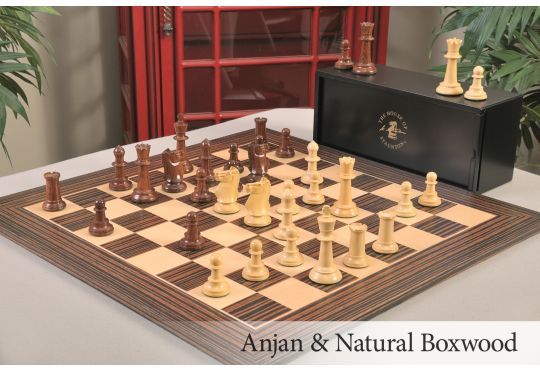 Free Worldwide Shipping
The 1962 Varna Olympiad Commemorative Chess Set, Box & Board Combination Enjoy Savings of 33% Off MSRP When Purchased as a Combination
Free Worldwide Shipping
The 1962 Varna Olympiad Commemorative Chess Set, Box & Board Combination Enjoy Savings of 33% Off MSRP When Purchased as a Combination$447.00
Starting at $319.00
To $388.95
-
 CLEARANCE - STRATEGY UNIVERSITY - Prevention and Preparation - Adrian Mikhalchishin - VOLUME 2Special Price $15.00 Regular Price $33.95
CLEARANCE - STRATEGY UNIVERSITY - Prevention and Preparation - Adrian Mikhalchishin - VOLUME 2Special Price $15.00 Regular Price $33.95
Threats
A threat forces our opponent to respond; otherwise, we either checkmate them, win material, or gain some other advantage. What threat can Black play below?

Here black can play the massive threat Bb7, threatening checkmate on g2! Remember that bishops like open diagonals? There is only one real way for white to stop this move, and that is with pawn to f3. But then we can rerun the “checks, captures, threats” program in our heads, and see Qxe3.
If you remember to look for checks, captures, and threats in every chess position, you will instantly improve your game.
Chess Tips: Your Chess Mindset
Next, I want to discuss what you focus on in your games, not specific moves. Many times, we can find ourselves having the wrong mindset in a game of chess, and that can be hugely detrimental to our play.
Tip #5: Avoid “Tunnel Vision”
If we are solely focused on our own plans and ideas in a chess game, we will fail. Chess is a game played by two people! Remember to always ask yourself this question: “What will my opponent play?”
If you never stop to think about your opponent's plans, ideas, or even straight-up checkmate threats, you will lose more games. So if you want to improve your game instantly, take off the blinders of your own ideas, and start asking yourself what your opponent will play if you play that move.
6. Eyes on the King
If you are always looking out for checks in the position then you will do this naturally, but make sure you always keep king safety in your mind. How does this move affect my king? Are all of my pieces on the other side of the board? Is my king being attacked? All of these things need to be at the center of our minds.

Here black may think they have a safe position. Their king is castled, but all of their pieces are on the other side of the board! So what classic attacking move does white have here? If white is keeping their eyes on the king, then they will spot the move Bxh7! The classic Greek Gift.
7. Pawns are the Soul of Your Position
I hear far too often from students something along the lines of, “well it's just a pawn.” Or maybe, “Do I really need that pawn?” And while it is certainly true that there are often valid reasons to let a pawn go for the greater good, pawns are also the soul of your position! Losing one important pawn can collapse your entire position.
Chess Training: Preparation and Practice
The last set of chess tips I will give you are all regarding the ways we prepare and practice our chess. Actually playing the game is only part of your chess improvement, there are other ways we can improve our study and prep to instantly improve our chess play.
8. Play Longer Games
If you truly want to improve at chess, you need to play longer games. Having more time on your clock means time to actually implement some of the things you have been learning. It gives you time to understand the position, scan for all your forcing moves, look for ways to improve your pieces, and so on. Playing blitz or bullet is fun, but try rapid or longer if you want to improve.
-
 Free Worldwide Shipping
The Reykjavik II Series Tournament Chess Set and Tiroir Combination Enjoy Savings of 28% Off MSRP When Purchased as a Combination
Free Worldwide Shipping
The Reykjavik II Series Tournament Chess Set and Tiroir Combination Enjoy Savings of 28% Off MSRP When Purchased as a Combination$528.00
Starting at $379.00
To $609.00
9. Be Confident in Your Openings
Some coaches tell a beginner to intermediate-level students not to study openings at all. To get better at playing chess, you need to be comfortable and confident playing games. Why would you play a longer rapid game if you get into a worse position playing an opening you are not comfortable with after two moves?
10. Look into Chess Coaching and Training
I would say my last tip is to analyze your own games, but I will take it a step further. If you want to instantly improve your chess game, bring your own chess games to a chess coach and look over the games with them. All chess players should focus on the areas where you can improve in those games, and learn! Sometimes we don’t know what we don’t know, and a chess coach can easily point you in the direction you need to go for even more improvement.
Frequently Asked Questions
The main reason we trade when up material is because if we extrapolate that traded material down to the end of the game, we should have material when our opponent doesn't, and we can use that material to checkmate.
Improvement comes from playing and enjoying your play, so make sure you are at least comfortable with your opening moves enough that you are not consistently losing games out of the opening. Make sure you control the center, develop your knights and bishops, and get castled. But don’t only study openings!
Checks, captures, and threats! Look at forcing moves and you will improve.
Almost every tactical blunder is due to a missed check. So start every calculation by looking through all possible checks in the position.
If you look at your opponent's captures, you will hopefully avoid blundering random pawns. However, if you can also learn to value pawns, passed pawns, and good pawn structures, your game will improve.



